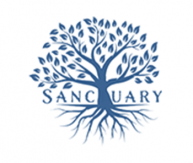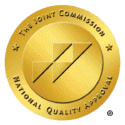Outpatient Rehab in Los Angeles, California
- Home
- Rehab Programs in Los Angeles, California
- Outpatient Rehab in Los Angeles, California
At Sanctuary Treatment Center our outpatient rehab in Los Angeles, California is best for those who need less intensive treatment options compared to the care offered at our inpatient facility. Along the path of recovery from addiction, a person will gain more freedom as they grow during treatment. Each person will advance at their own pace. However, they will move through different levels of care as they return to everyday life.
Hours of Operation:10am to 4pm Monday through Friday
Location: 15613 Ventura Blvd Encino CA 91436

What is an Outpatient Rehab Center?
An outpatient rehab center differs from inpatient facilities in one main way. During inpatient rehab, clients reside within the facility. Yet, clients do not need to live within the facility during outpatient rehab. In the outpatient level of care, clients have more time to engage in daily life.
Outpatient rehab is best for people who have support at home or within a sober living program. In addition, a person should have been through a higher level of care, such as detox and residential treatment first. In other words, the person needs the skills and resources to abstain from drug or alcohol use without continuous supervision.
During outpatient rehab care in Los Angeles, CA, clients get to resume everyday life while still working on recovery. They can practice new coping skills in real-life situations. And, they can get help or feedback along the way. Most outpatient programs will work around the client’s schedule. Thus, a person can fulfill duties to work, school, and family while in treatment.
How Does Our Los Angeles Outpatient Rehab Work?
Outpatient rehab in Los Angeles works by first assessing the client’s needs during their first visit to our rehab center. This helps to ensure the client is getting the right treatment. Our team might recommend a higher level of care if this seems best. For instance, if a person is still using drugs or drinking, we would suggest they begin detox and residential treatment first.
After that, clients will work on a treatment plan. The team will discuss the client’s goals to better know what type of program they need. Clients will also talk about their level of support among family members, friends, and others outside of treatment.
Support is vital to success in recovery. Thus, clients with little to no outside support should consider a sober living home in addition to outpatient treatment. Each treatment plan will include different types of therapy for each client. At Sanctuary, we offer many types of therapy so clients have choices.
What Happens at Our Outpatient Treatment Center in Los Angeles?
At outpatient rehab, clients choose from a number of options for therapy and treatment. Some therapies will work better for one client than another. Our client-centered approach empowers clients with choices in recovery.
We offer the following types of therapy at our Los Angeles outpatient rehab center:
Psychotherapy
Therapy is a crucial part of any drug or alcohol rehab plan. Often, clients need help with underlying issues, like stress, relationship problems, and poor emotional health. Building skills in these areas improve treatment outcomes.
Our therapy sessions include different types, such as:
Individual therapy occurs in a one-on-one setting between a client and a therapist. In addition, individual therapy includes specific modalities to best suit a client’s needs. Cognitive-behavioral therapy (CBT) helps with a number of issues related to negative thoughts and unhelpful beliefs. On the other hand, dialectical behavioral therapy (DBT) is a more focused type of CBT.
Family therapy helps families and their loved ones in recovery. Addiction affects the entire family. Bringing families together in family therapy helps not only the person in recovery but everyone involved.
Trauma therapy deals with trauma-related issues. Trauma is common among those with an addiction. Some have a mental health disorder called post-traumatic stress disorder (PTSD). Others have gone through traumatic events or adverse childhood experiences (ACEs) without developing PTSD.
Neurofeedback
Neurofeedback is an innovative technique offered in our outpatient treatment center in Tarzana. This is a non-invasive procedure where a therapist learns more about how a client’s brain functions. A person will have electrodes placed on their scalp to measure brain activity while completing tasks. These tasks might include playing a game or watching a video clip.
Overall, neurofeedback helps to know what parts of the brain are under or overactive. A therapist can then suggest activities that will strengthen underactive areas or calm overactive ones.
TMS Therapy
TMS therapy is a type of treatment that is great for people who don’t respond to traditional treatments. During TMS (transcranial magnetic stimulation), electric pulses stimulate underactive areas in the brain thought to cause mental health disorders. Like neurofeedback, TMS therapy is non-invasive. Therefore, clients can come in for appointments and leave on the same day.
Holistic Rehab
The word “holistic” refers to the “whole self” in treatment. In other words, holistic rehab deals with many areas of a client’s health and wellness. A person learns practical ways to manage triggers, cope with stress, and divert cravings for drugs or alcohol.
Holistic rehab includes things like:
Art and music therapy
Nutritional help
Mindfullness-based therapy
Dual Diagnosis Treatment
Many people with a substance use disorder also have a co-occurring mental health disorder. A dual diagnosis disorder occurs when an addiction and mental health disorder are diagnosed at the same time. Often, people use substances to cope with underlying mental health conditions. On the other hand, abusing substances can alter the brain and cause mental health concerns. Thus, dual diagnosis treatment is vital for outpatient rehab programs.

Is Outpatient Rehab in Los Angeles Right for Me?
Outpatient treatment is great for people who can stay sober without the restrictions of an inpatient facility. A person who is not yet sober would not benefit from outpatient treatment. Additionally, people without stable housing or a solid support system are not suited for outpatient programs. They might be better served during inpatient rehab until they have more stability in life.
However, if a client can manage triggers on their own and has others to hold them accountable, then outpatient treatment is right for them. Also, a person should consider this step if they have completed higher levels of care already. In this way, they can step down from one level to the next as they grow in their recovery.
Get Help at Our Outpatient Rehab Center in Los Angeles, CA Today
As clients advance in their treatment, they need less professional support from a facility. Thus, they can start to find more freedom to practice their coping skills in everyday life. If you or a loved one need continuing treatment following inpatient rehab, Sanctuary Treatment Center can help with the next steps in recovery. Our outpatient rehab in Los Angeles, California, is here for those in the advanced stages of drug and alcohol rehab.
Contact us today to learn about our client-centered rehab programs.
All Services
- Acceptance and Commitment Therapy in Los Angeles, CA
- Group Therapy in Los Angeles, CA
- Individual Therapy Program in Los Angeles, California
- TMS Therapy in Los Angeles, California
- Neurofeedback Therapy in Los Angeles, CA
- Holistic Rehab in Los Angeles, California
- Trauma Therapy in Los Angeles, California
- Family Therapy for Addiction in Los Angeles, CA
- Cognitive Behavioral Therapy – CBT – in Los Angeles, California
- DBT Therapy in Los Angeles, CA
- EMDR Therapy in Los Angeles, CA
Sanctuary Treatment
Contact Us
![]()
Call Us:
+ (888) 584 4314![]()
Email:
info@sanctuary.com![]()
Address:
Whitestone Court, Tarzana, CA 91356

We Take Insurance!
Sanctuary Treatment Center accepts most private PPO insurance plans, as well as some private HMO plans. Through private insurance plans, individuals and families can access high quality addiction treatment services. If you have questions regarding insurances, please give us a call.

Copyright © 2022 Sanctuary Treatment Center.
